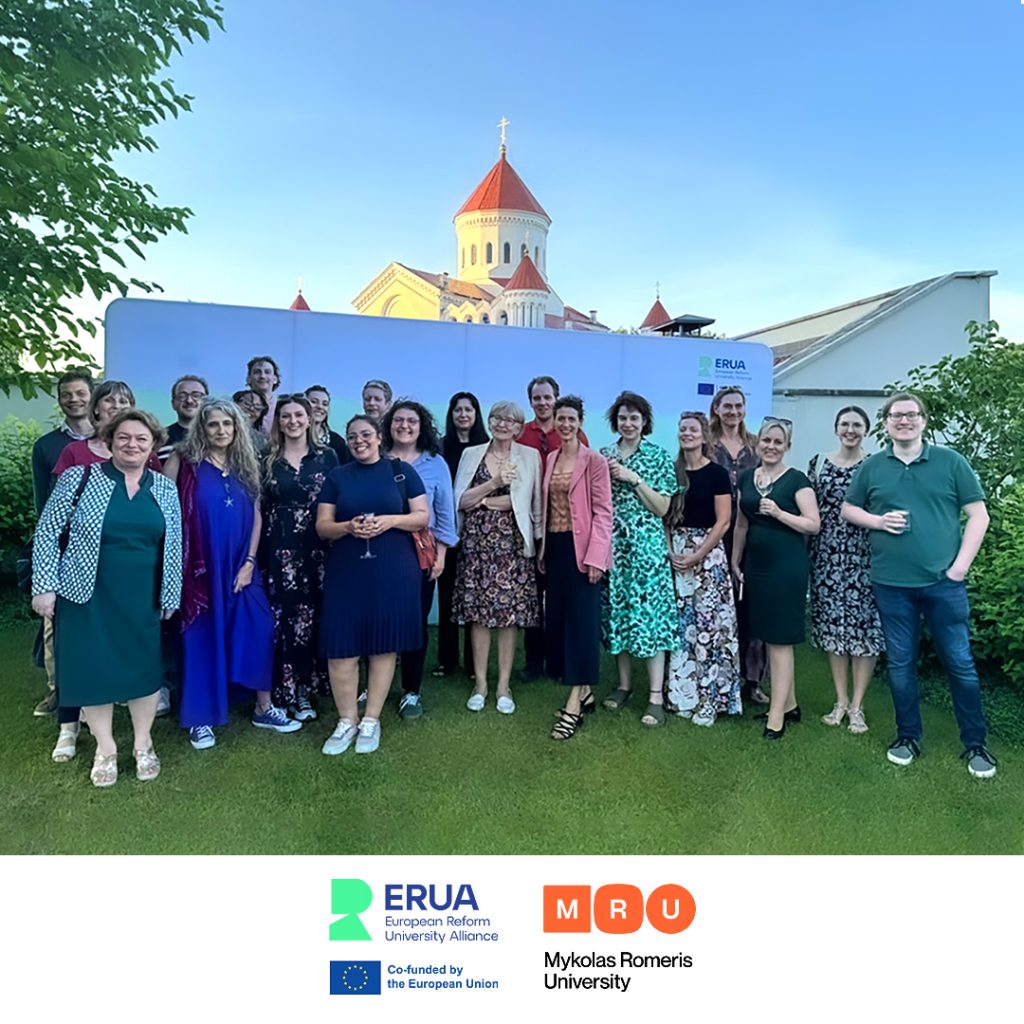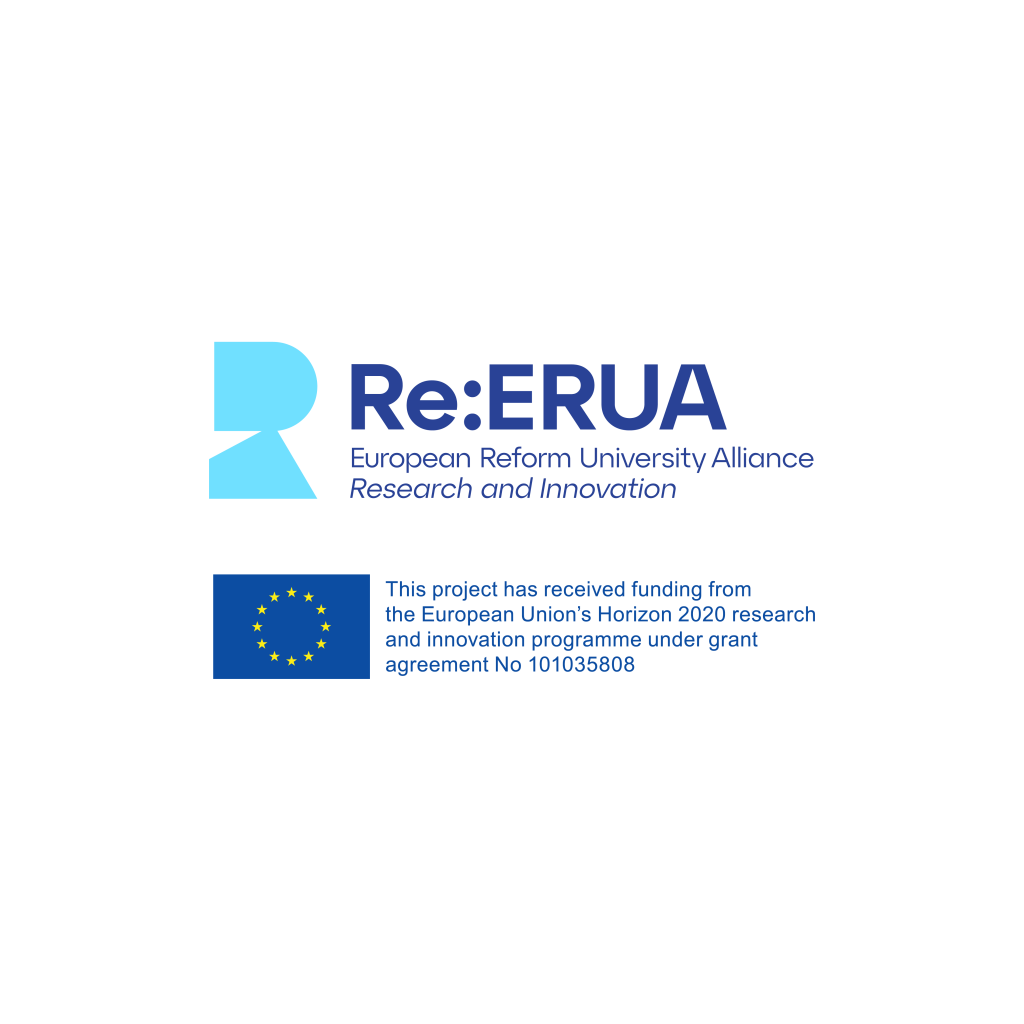Re:ERUA played a pivotal role at the ERUA Summit 2024, hosted by Mykolas Romeris University in Vilnius from June 25 to 27. The Re:ERUA teams organized a series of impactful events, seamlessly integrating their outcomes and milestones into the broader ERUA discussions, and actively participated in the conference on “Social Innovation for a Transformative Society.”
The following discussions were part of the contributions mentioned:
Discussions on Open Science
On June 25, Maximilian Heber from the University of Konstanz and Goran Sekulovski from Paris 8 University led the “Open Science Live Meet-Up: Panel Discussion on (Social) Developments related to Open Science in ERUA and Future Perspectives.” This session focused on the evolving landscape of open science within ERUA and its future prospects.
Following this, Sonja Karlj and Matthias Landwehr presented their study on data management plan usage in ERUA, titled “From Planning to Reusing: Researchers’ Research Data Management Needs along the Research Data Lifecycle at ERUA Universities.” They addressed the needs and challenges faced by researchers and provided recommendations to enhance data management practices within ERUA institutions.
Become a Better Research Collaborator
On the afternoon of June 26, WP3 Re:ERUA hosted its final conference in a workshop format, “Do you want to become a better collaborator?” Moderated by Anette Stenslund and Jenny Eschweiler from Roskilde University, this session invited participants to explore the challenges in research collaborations. The workshop encouraged participants to navigate these dilemmas, framed within the ethics of care, fostering a more supportive and collaborative research environment.
Applying Epistemic Justice in Academia
On June 25, within the framework of an expert group, WP2 organized the session “Whither Epistemic Justice? The Case for SWAFs Initiatives, or How to Make the Concept of Epistemic Justice Concrete and Actionable?” Led by Arnaud Regnauld, the scientific coordinator of Re:ERUA, the session featured experts such as Silvia Pierosara from the University of Macerata, Angelo Vannini from Paris 8 University, and Kristine Samson from Roskilde University. The goal was to translate the theoretical concept of epistemic justice into practical applications within universities, promoting a fair and inclusive academic environment. These insights will contribute to the final Re:ERUA engagement strategy, which is the key strategic deliverable.
Re:ERUA – Reflecting on the Journey, Embracing the Future
Valeria Manzione, Re:ERUA coordinator, and Arnaud Regnauld reviewed the outcomes and milestones of Re:ERUA during the Joint Re:ERUA Executive Committee and ERUA Management Committee meetings. Their review highlighted Re:ERUA’s collaborative and forward-thinking approach, ensuring a smooth transition to the new partners and governance structures.


